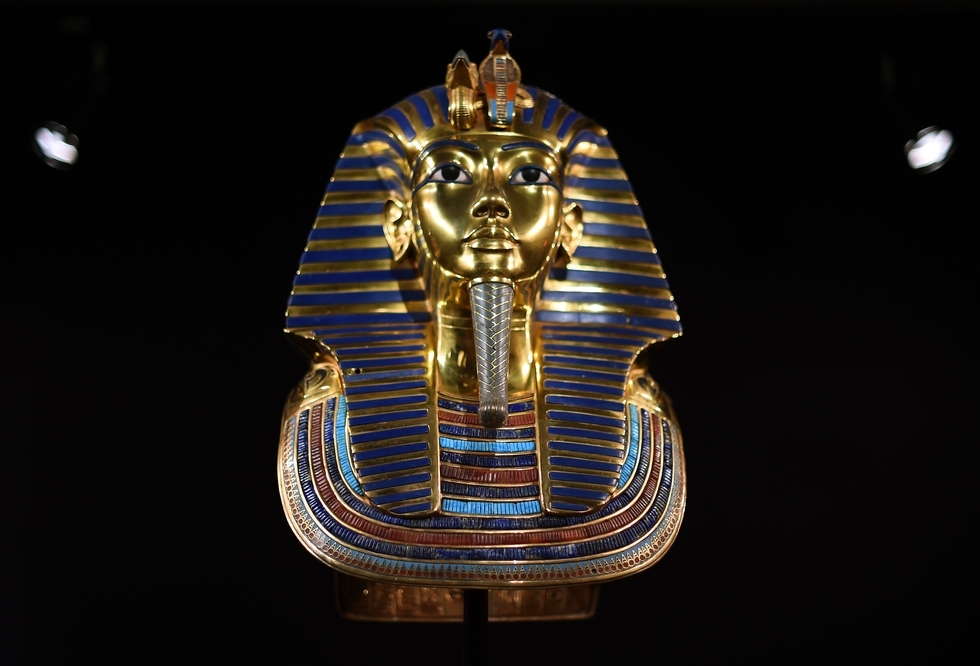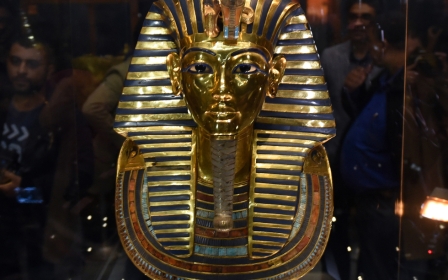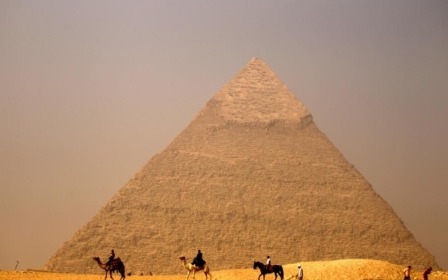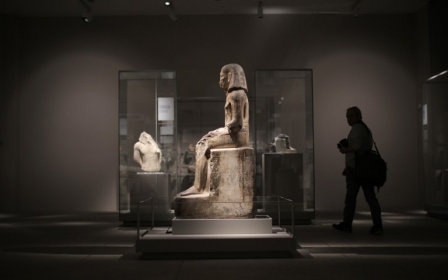Cairo museum staff face trial over 'glued' Tutankhamun beard

Eight Egyptian museum employees are set to face trial accused of causing damage to the iconic gold mask of Egyptian pharaoh Tutankhamun.
“The officials dealt recklessly with a piece of an artefact that is 3,300 years old, produced by one of the oldest civilisations in the world,” prosecutors said in a statement, referring to the incident in August 2014.
The eight employees face charges of negligence and violation of the professional rules of the workplace, the statement said.
The Egyptian daily Al-Ahram daily reported that the employees are two restorers, four restoration specialists, and two former heads of the restoration section at Cairo’s Egyptian Museum.
The world famous burial mask, which is one of Egypt’s biggest tourist attractions, was impaired during work on the relic’s lighting, when a museum employee accidentally knocked off the blue and gold braided beard.
The beard was reattached using epoxy glue, which contains an insoluble solution, over several botched attempts, prosecutors alleged.
The employees then used a knife to scrape off the residue of the glue off the mask, causing further damage.
Prosecutors said that the employees made four attempts to reattach the beard. They then attempted to get rid of evidence of their earlier failed efforts.
"Ignoring all scientific methods of restoration, the suspects tried to conceal their crime by using sharp metal tools to remove parts of the glue that became visible, thus damaging the 3,000-year-old piece without a moment of conscience," an Egyptian prosecutor said.
An Egyptian-German restoration team spent a couple of months repairing the mask’s damages, before it was ready to go back on public display in December.
New MEE newsletter: Jerusalem Dispatch
Sign up to get the latest insights and analysis on Israel-Palestine, alongside Turkey Unpacked and other MEE newsletters
Middle East Eye delivers independent and unrivalled coverage and analysis of the Middle East, North Africa and beyond. To learn more about republishing this content and the associated fees, please fill out this form. More about MEE can be found here.




